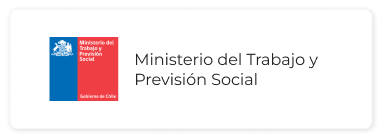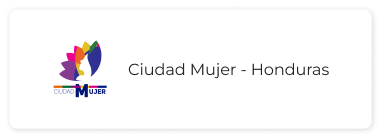The project involves developing and implementing an innovative and efficient Inspection Management System (SGI) for the Labor Directorate. This system will modernize and optimize the labor inspection process by automating administrative tasks, eliminating reliance on paper documents, and providing technological solutions that enhance productivity at all levels of the institution, ensuring timely and proper compliance with labor legislation.
Project Brief
- Project Name: Inspection Management System (SGI)
- Sponsor: Labor Directorate, Government of Chile
- Start: February 2024
- For labor inspectors, supervisors, and administrators of the Labor Directorate, administrative staff, employers and companies, workers, and unions.
- Users: Approximately 10,000
- Project Area: Management and Benefits
The SGI will include features such as a responsive application for conducting field inspections, generating reports and statistics, integration with other internal and external systems, automatic notifications, and a training plan for key users.
How does this project impact society in general?
- Improvement of Working Conditions: By ensuring more effective compliance with labor laws, the SGI will contribute to improving working conditions for workers across various sectors. This includes aspects such as fair wages, adequate working hours, safe conditions, and respect for labor rights.
- Reduction of Labor Informality: The efficient implementation of the SGI can help reduce labor informality by enforcing labor regulations and increasing transparency in the labor market. This means more workers will be properly registered, have access to labor benefits, and be protected by the law.
- Promotion of Equity and Social Justice: By leveling the playing field and enforcing labor laws more rigorously, the SGI promotes equity and social justice by ensuring that all workers, regardless of their employer or industry, have access to fair and safe working conditions.
- Strengthening Trust in Institutions: The successful implementation of the SGI will increase public trust in government institutions and the legal system as a whole. When citizens see that authorities are taking measures to protect their labor rights and ensure fair working conditions, they are more likely to trust the government and the institutions representing it.
- Encouragement of Sustainable Economic Development: A fair and equitable labor environment is crucial for sustainable economic development. By ensuring compliance with labor laws, the SGI promotes job stability, productivity, and innovation, contributing to long-term economic growth and overall societal well-being
- Reduction of Labor Exploitation and Inequality: By enforcing labor laws and closely monitoring labor practices, the SGI will help reduce labor exploitation and inequality in the workplace. This will improve workers’ quality of life and foster a fairer and more equitable work environment for all.
- Increased Efficiency and Productivity: By automating administrative tasks and optimizing the labor inspection process, the project will enhance efficiency and productivity for both labor authorities and businesses. This will reduce response times, streamline processes, and enable more effective resource allocation.

Types of impacted users:
- Workers: Workers will be one of the main beneficiaries of the project, as they can expect a safer, fairer, and more regulated work environment. This includes access to fair wages, safe working conditions, and respect for their labor rights.
- Employers: Employers will also be impacted by the project, as they will be subject to increased supervision and compliance with labor laws. This may require changes in human resource management practices and company labor policies.
- Labor Authorities: Labor authorities will be responsible for implementing and managing the SGI. This may involve training staff, coordinating with other government agencies, and managing data and resources related to labor inspection.
- Trade Unions and Labor Rights Organizations: These organizations will see the project as an opportunity to strengthen labor rights protection and advocate for fair working conditions. They may collaborate with labor authorities to monitor the implementation of the SGI and ensure its effectiveness.
In summary, the Inspectorate Management System project will have a highly positive and significant impact on various users, including workers, employers, labor authorities, and trade unions, by improving working conditions, reducing labor informality, increasing transparency and accountability, and enhancing efficiency and productivity in the labor sector.




















